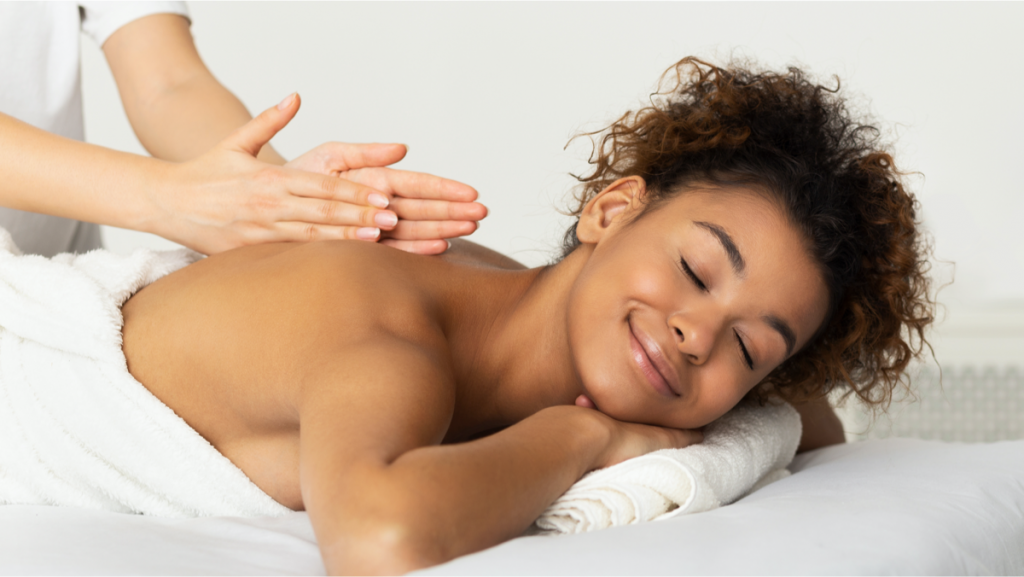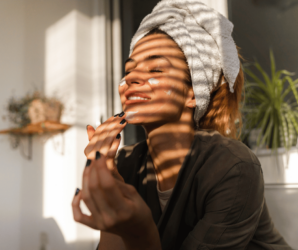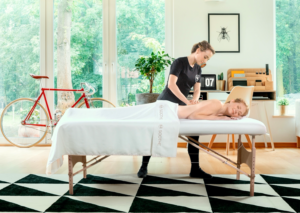Let’s be honest: therapy is kind of scary. Mental health is becoming a bigger topic of conversation, especially on social media. So, we wanted to talk to an expert about what it’s like to go to therapy, and ways you can work on your mental health in a safe and effective way. Soothe’s Kristin Malia sat down with licensed psychologist, food relationship strategist, consultant, author, and creator of My Therapy Cards, Dr. Ebony, to talk about mental health, making therapy more accessible, and how social media impacts our well being.
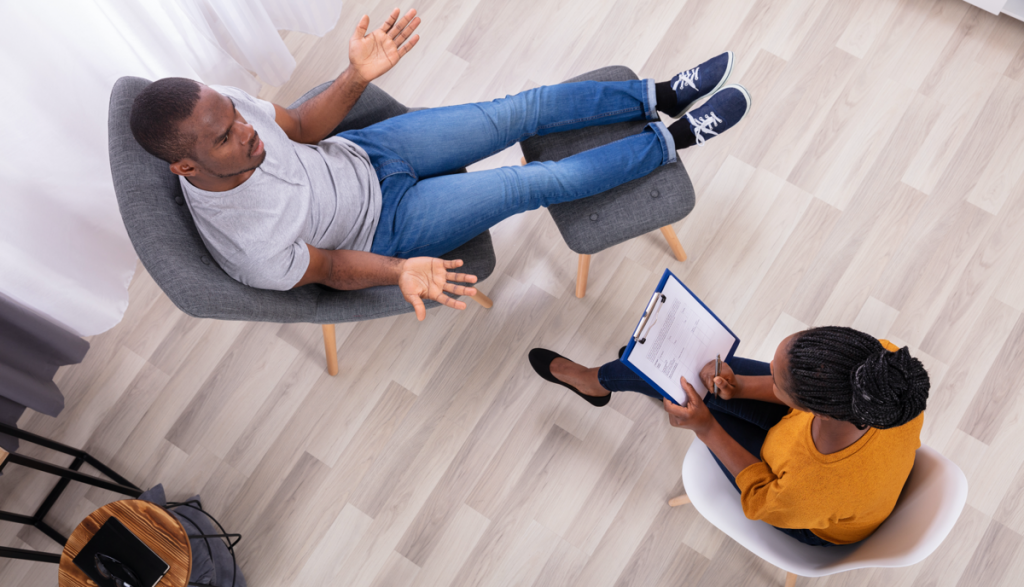
Why are we so intimidated by therapy?
Sometimes it’s hard to get the help we need, especially when it comes to mental health. In creating My Therapy Cards, Dr. Ebony wanted to address the main reasons that people forgo seeing a therapist or talking to a psychologist. According to Dr. Ebony, the three main barriers that stop people from getting the mental health help they need are:
- Cost
- Accessibility
- Stigma
The simple fact is that therapy can be expensive. Often, people choose to forego seeing a therapist or psychologist simply because they cannot afford it. When someone can afford regular therapy, there’s the added problem of finding and actually seeing a psychologist.
According to Dr. Ebony, only 4% of psychologists are black. This makes it harder for black people especially to find a therapist they connect with on a more fundamental level. In addition, limited access to mental health facilities, especially in lower-income areas, often prevents people from finding a therapist they can see on a regular basis.
Even with all the ongoing work to normalize conversations around mental health, there’s still a negative stigma associated with going to therapy. This stigma is especially prevalent among women of color, says Dr. Ebony, where historical stereotypes of strong, independent, and nurturing women still influence a negative view of therapy as a sign of weakness or being “crazy.”
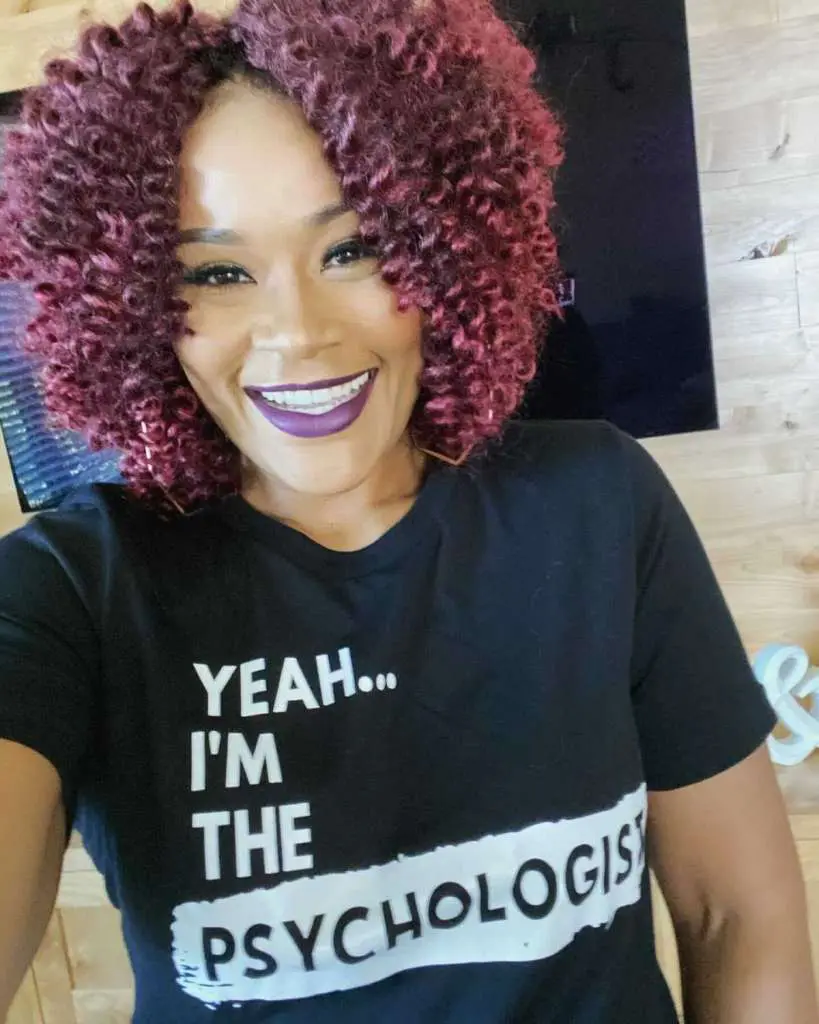
A psychologist’s perspective on mental well being in a constantly connected world
Throughout her career working with veterans and those who have experienced trauma, Dr. Ebony learned that the triggers for anxiety, depression, and negativity often stemmed from what was happening around us. With today’s perpetual newsfeed, traumatic and triggering events are getting harder to avoid.
While social media can be a powerful tool in creating and finding resources for mental health, Dr. Ebony also says that “the more we consume, the more exposed we are to possible trauma.” Constant scrolling can also contribute to increased anxiety, depression, insomnia, and even PTSD.
“Social media is impacting our well-being, it’s impacting our mental states, and we have to limit it in order to be well.”
Dr. Ebony
So how can we balance it? “Create boundaries around social media,” says Dr. Ebony. Set aside time for social media in the morning or afternoon, she says, and don’t continuously consume throughout the day. Be mindful when there’s a lot of trauma happening in the world, as there is currently. Talking with a professional can help you work through the heavy feelings, and help you put together a self-care program that works for you.

What are My Therapy Cards? Who can use them?
When Dr. Ebony set out to bridge the mental health accessibility gap, she wanted to create something that was easy to use, cost-conscious, and effective. The final product became My Therapy Cards, a deck designed to help women of color dive deeper into their emotional and mental health, and make lasting, positive changes. While the My Therapy Cards were initially created to address specific challenges and mental health needs for women of color, Dr. Ebony found that they have a much wider appeal, and could make therapy more accessible to women (and men) of all backgrounds. Using a framework developed by Dr. Ebony, the cards help people identify roadblocks to progress, and give them the tools to work through core issues.
“It helps people do the work that is necessary for us to dive deeper, and get comfortable with what it feels like to answer the tough questions therapy asks of us.”
Dr. Ebony
The My Therapy Cards are beneficial on their own for anyone who is not yet comfortable with seeing a therapist, or who may not have access to a therapist right now, but still wants to work through some mental health struggles. They’re also an excellent self-care tool between therapy appointments!
What about virtual therapy?
In 2020, many people turned to virtual therapy, or teletherapy, as an alternative to in-person sessions while facing social distancing constraints. Without the usual coping mechanisms and distractions, like travel and hanging out with friends, Dr. Ebony says she found more people turning to teletherapy to cope with anxiety and trauma they may have otherwise ignored.
However, “there’s a lot that is lost when you’re not in the room when you can’t read the body language or read the energy,” says Dr. Ebony. “You just can’t get that over the computer.”
That being said, “teletherapy is actually very effective,” says Dr. Ebony. It makes finding a therapist and keeping regular appointments easier, and she says that more people are being proactive about booking therapy now, which is a step in the right direction.
Can massage affect your mental health?
When you think of massage, there’s a good chance you think about the physical benefits: relaxing muscles and reducing pain. However, massage can actually impact your mental well-being, too!
In addition to therapy, regular massage is a great way to work on your mental health. On a scientific level, serotonin and dopamine levels increase after a massage. Plus, researchers have reported lower stress hormone levels, called cortisol, following a massage. This means that getting a massage can actually make you feel happier and less stressed. Getting weekly massages is an excellent way to cope with a stressful lifestyle, especially when paired with therapy. If you find yourself feeling anxious in between your therapy sessions, booking a massage and using a tool like My Therapy Cards are excellent, healthy coping mechanisms that can improve your mental state and get you feeling happier, sooner.
